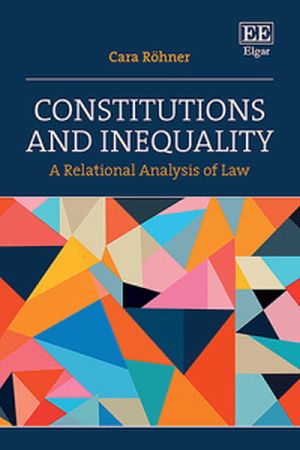
Building on economic and feminist critiques of legal individualism, this book develops a relational analysis of constitutional law in the context of real-world social inequality. It provides a methodological framework for legal scholarship as well as a vocabulary for equality-oriented interpretations of law.
Cara Röhner investigates the concept of an inequality audit of constitutions, as well as the three dimensions of inequality: redistribution, recognition and representation. Röhner reconstructs how socioeconomic and gender inequalities are negotiated under German constitutional law and EU law. Based on this analysis, the book further discusses the idea that the development of a constitutional language for addressing structural inequality is crucially linked to reforming the methodological approach to legal research.
Combining political and legal theory with an examination of constitutional doctrines, this book is vital for students and scholars of comparative law, constitutional and administrative law, philosophy and political science. It is also an informative resource for social and women’s rights activists and politicians interested in economic and gender inequalities.